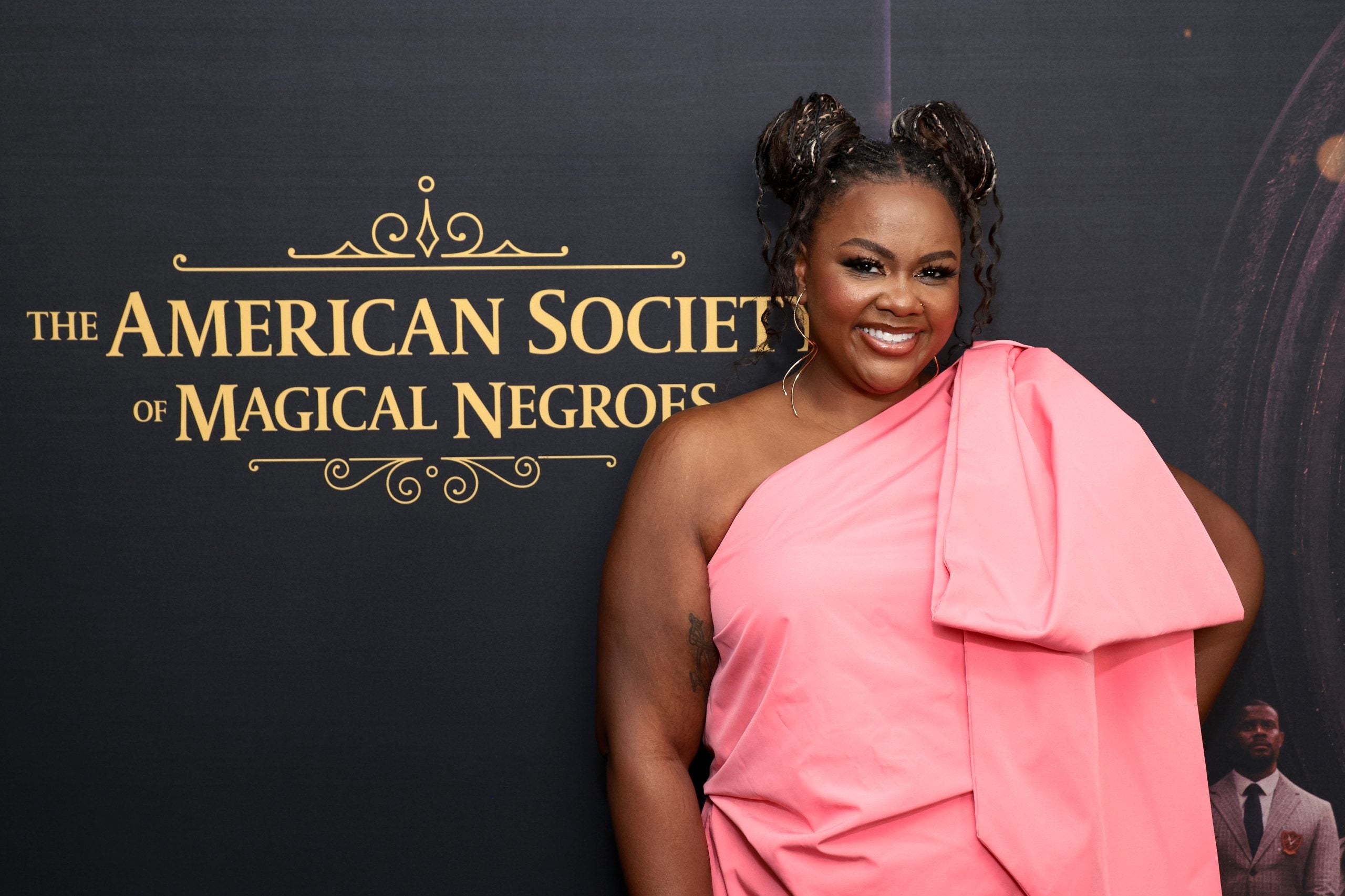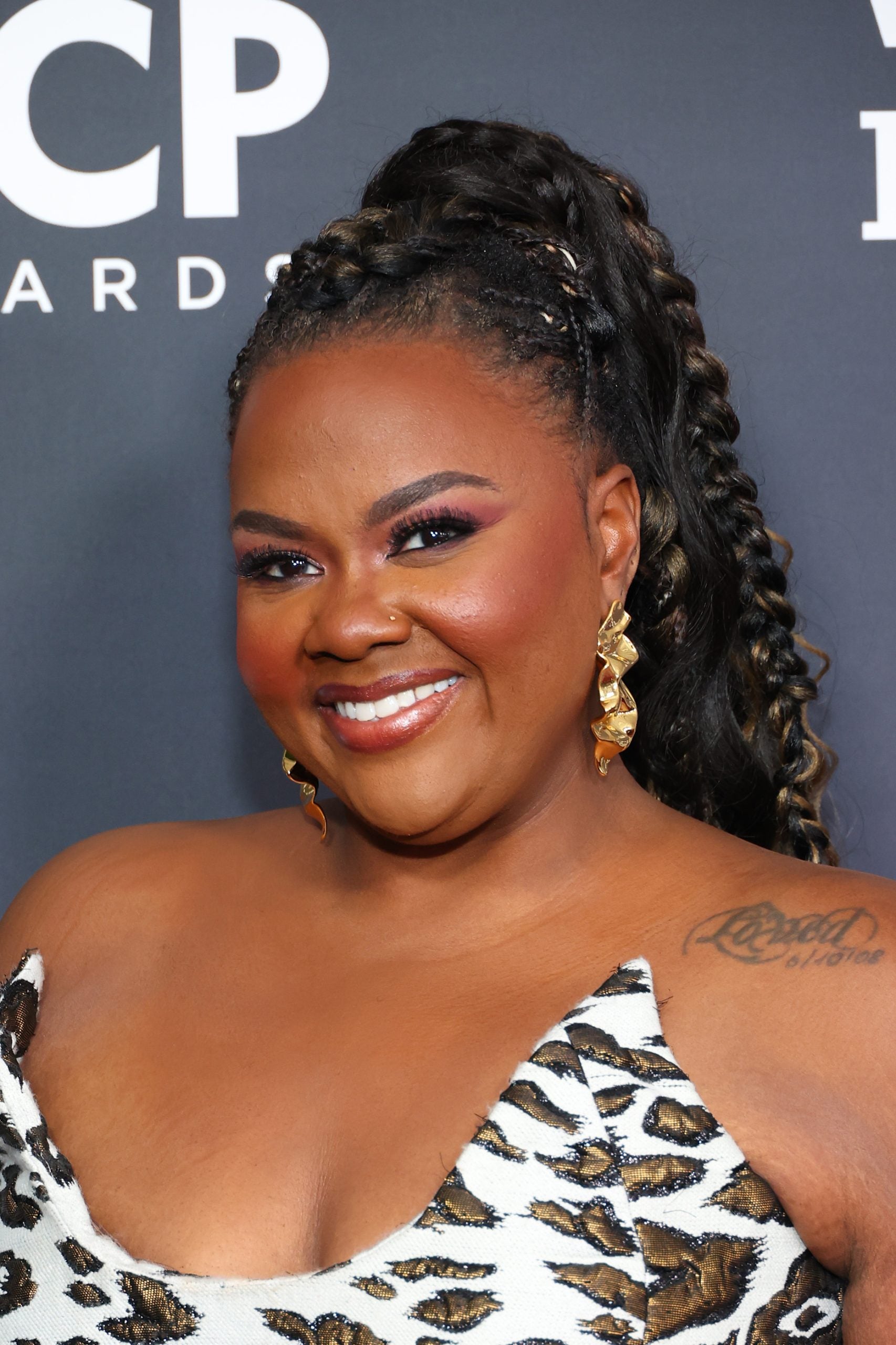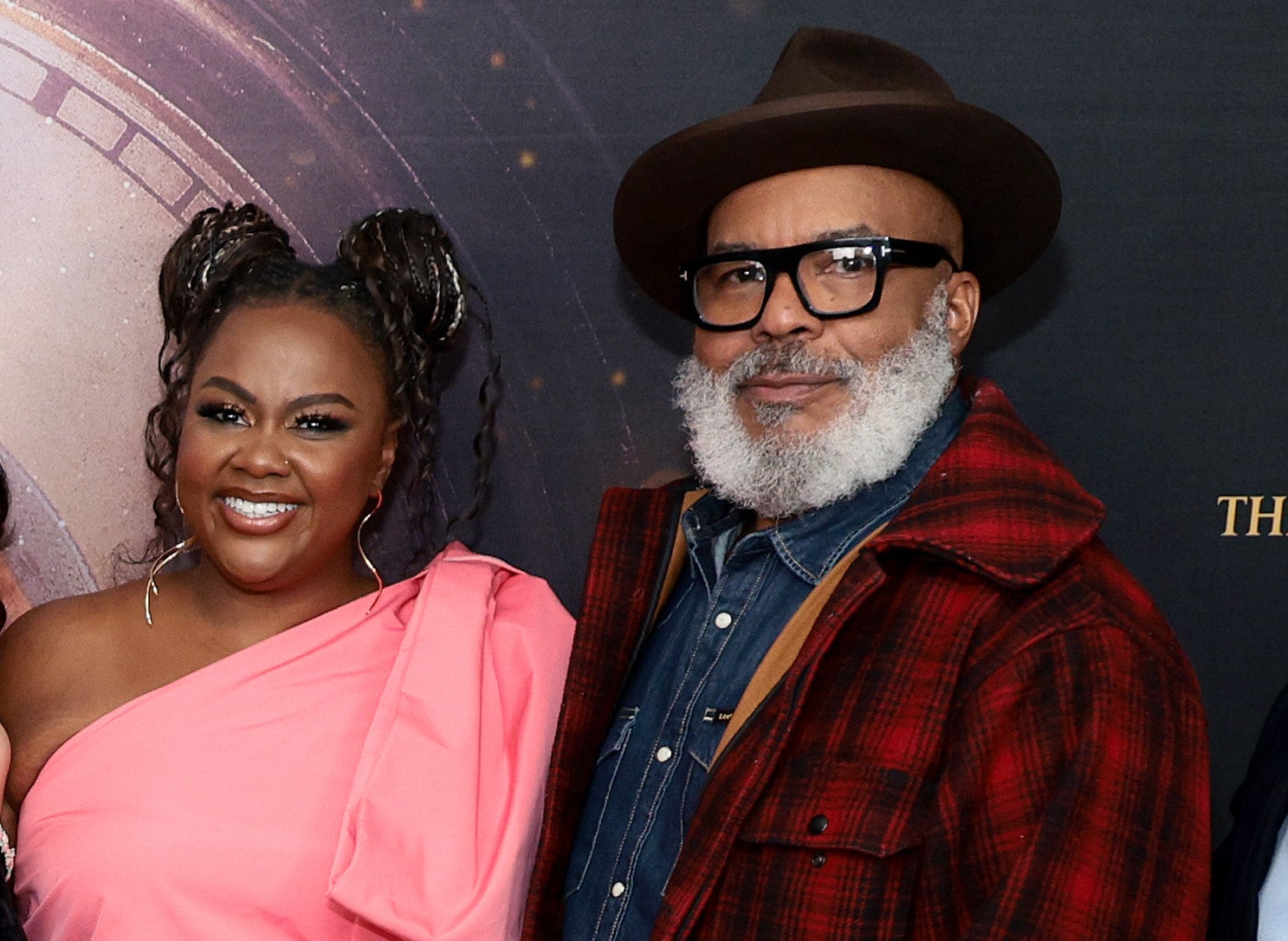
Nicole Byer is quite literally bringing her own brand of Black girl magic to the screen with her latest role as the proverbial H.N.I.C. of The American Society of Magical Negroes.
Byer stars in the much-buzzed-about satirical comedy that follows Aren (Justice Smith) and his mentor Roger (David Alan Grier) as they navigate a secret society of Black people with magical powers, whose entire existences are dedicated to keeping white people comfortable. Based on the “magical negro” trope in media – a term coined by Spike Lee – which finds Black characters playing second banana or right-hand-man to white characters who need their assistance to realize their best self (think of Michael Clarke Duncan in The Green Mile, Will Smith in The Legend of Bagger Vance, or Jennifer Hudson in the first Sex and the City film), the film takes the concept and asks what happens if we simply center ourselves instead?
We caught up with Byer just ahead of film’s March 15 release to talk all things magical, showing up for self, and why she refuses to reverse code-switch in real life or on screen.
ESSENCE: When a script titled The American Society of Magical Negroes came across your desk, what did you think? And what about the storyline made you say yes?
Byer: Honestly, the name is so polarizing. I was like, “what is this?” I don’t know if people know that it’s based on a trope in film and television, the magical negro trope, where there is typically a best friend or a wise black person who helps the white protagonist through their hero’s journey.
I really love that Kobi {Libii, writer and director} created The American Society of Magical Negroes, making the film trope into an actual realized thing and then wrapping a love story in it. I thought that was just so clever and smart. And when I read it, I thought, “Ah, shit, this really resonates with me!” Even though it’s not a story about a Black woman – it’s a story about a biracial man – but him finding his voice and ability to speak up for himself and advocate for himself. I think everybody can kind of see themselves in that.

Speaking of that magical negro trope, though the film is satirical and literalizes the concept, the idea of bearing the pressure of keeping white society comfortable with our presence is something very real for many of us on a day-to-day basis. Is this something that has shown up for you in real life, particularly working in this industry?
In the industry? Yes! There’s a never-ending flow of best friend parts where you don’t get to be the main character; where people of color get to be character actors and never the main character. Code-switching is a thing that we do to make white people more comfortable.
I sound the way I do, and people have said, “Oh, you sound white,” or whatever. But I’ve never felt the need to code-switch to be a stereotypical Black person [for the media]. I’ve had people in auditions ask me to do it, and I think it’s a little ridiculous – not a little a lot – because Black people aren’t a monolith. There are so many Black people who sound like me, and we deserve representation.

For those who haven’t seen the film yet, tell us about Dede.
Dede is the head of the American Society of Magical Negroes, and she’s all about keeping the status quo. Helping white people gives us powers, and that’s what she’s about. When that’s questioned, she gets annoyed and upset.
I feel like that speaks to a bigger thing where it’s like some Black people are cool with adjusting themselves for white people and making white people feel more comfortable. And, I think we do need to shake up the status quo. We need to shake things up a little bit. Otherwise, how do all our stories get told if nobody is getting in there and telling people that our stories need to be told? I mean, not just in entertainment, but in life in general.
And in this role, you’re essentially bossing around David Alan Greir, who’s a comedic legend that we all grew up watching. What was it like for you working alongside him on this project?







David Alan Greir is truly incredible. It was a dream to be able to share the screen with him or have a credit with him, and he is just so insightful and wonderful and great. And during downtime, we would talk about comedy and stuff, just truly, it was incredible. He is an is an icon.

As I’m sure you saw, there was a lot of online reaction when the trailer first went viral, and even more now that it has opened at the box office. What do you think that the takeaway from this should be for audiences?
I think the takeaway should be to feel empowered, to feel like your life matters. Your voice matters. Your thoughts matter. And speaking up can be scary, but ultimately it’s going to help you. It’s going to relieve you and make you feel freer. I’ve never once spoken my mind in a true way and then regretted it.





